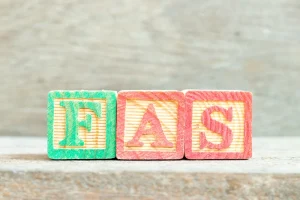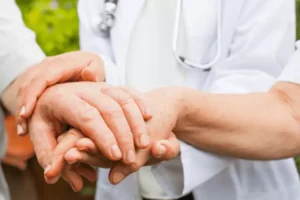
Dr. Curl is the Medical Director and primary on-site provider for First Steps Recovery. He is a Board Certified Internist and Addiction Medicine Specialist having attended the David Geffen School of Medicine at UCLA and completing his residency at Mount Auburn Hospital with Harvard Medical School. Following several years work as an internist and physiatrist (physical medicine and rehabilitation).
The Stages of Change

While our cultural psyche tends to default to a clinical recovery pathway involving some kind of mix of rehab and/or AA—which can be lifesaving—in fact, many recover without using any external services. Others make use of medications, and still others recover with religious or spiritual guidance. Each person’s timeline for recovery varies based on their unique needs, substance use history, and life circumstances. However, recovery can be thought of in 4 primary phases that include withdrawal, early, middle, and late phases of recovery. Employment is virtually essential for having a stable and meaningful life.

Potential vaccines for addiction to substances
- Employment is virtually essential for having a stable and meaningful life.
- The impact of addiction extends beyond mental health, affecting relationships, employment, and overall quality of life.
- Tragically, in the media and mainstream society we hear much more about the dramatic and fiery wreckage of active addiction and relapse than we do about quiet, inspired, and inspiring stories of long-term recovery.
If you or a loved one are experiencing drug tolerance and dependence, it’s crucial to consult healthcare providers for a tailored treatment plan. This could involve tapering off the medication under supervision, engaging in cognitive-behavioral therapy, or potentially using medications like methadone or buprenorphine for opioid tolerance and dependency. The maintenance stage is the fifth stage of the Transtheoretical Model of Change published by Prochaska JO, Velicer WF in their 1997 research study. In this stage, individuals have successfully modified their addictive behavior and are focused on maintaining their progress over the long term.
Stage 4: The Action Stage
It’s up to each individual to decide when to begin “working the steps,” and when to approach a sponsor. Your sponsor is meant to provide guidance, support, and understanding during the steps process. Different types of medications may be useful at different stages of treatment to help a patient stop abusing drugs, stay in treatment, and avoid relapse. While relapse is a normal part of recovery, for some drugs, it can be very dangerous—even deadly. If a person uses as much of the drug as they did before quitting, they can easily overdose because their bodies are no longer adapted to their previous level of drug exposure. An overdose happens when the person uses enough of a drug to produce uncomfortable feelings, life-threatening symptoms, or death.
How to Find Drug and Alcohol Addiction Treatment Near Me

The preparation stage is all about setting yourself up for success. Take your time here, be thorough, and remember that good preparation can make all the difference in your recovery journey. It’s not uncommon for people to get stuck here, caught in a loop of wanting to change but feeling unable to move forward.
- Drug addiction often disrupts the brain’s dopamine system, which involves motivation, reward, and pleasure.
- If you are addicted to alcohol, pills, or illegal drugs, the first step toward recovery is detox.
- Helping a person recovering from an addiction can come down to helping them connect to treatment—if they’re not already doing so—and encouraging support groups like AA.
- Studies show that craving for alcohol peaks at 60 days of abstinence.
- If you believe it’s your best option, get a doctor to review your situation and approve the plan before you start.
Explore your addiction treatment options
After completing a formal treatment program, individuals often receive an after-care plan tailored to their specific needs. This plan may include ongoing therapy, support group participation, and regular check-ins with healthcare professionals. Consistently following this plan provides structure and guidance, helping individuals navigate the challenges that may arise post-treatment. As you seek help for drug addiction, it’s also important to get treatment for any other medical or psychological issues you’re experiencing.
Whether through individual or group therapy, medication-assisted treatment, or holistic interventions, tailoring the approach to the individual’s circumstances enhances the effectiveness of addiction recovery efforts. Understanding the dynamic nature of addiction, harm reduction aligns with the idea that relapses may occur and should be viewed as opportunities successful drug addicts for learning and adjustment rather than as failures. By adopting harm reduction strategies, individuals gain the tools to make healthier choices, manage risks, and gradually work towards minimizing the impact of substance use on their lives. Science indicates that triggers such as people, places, things, moods, and drug exposure play significant roles.
FIRST STEPS RECOVERY







Leave a comment